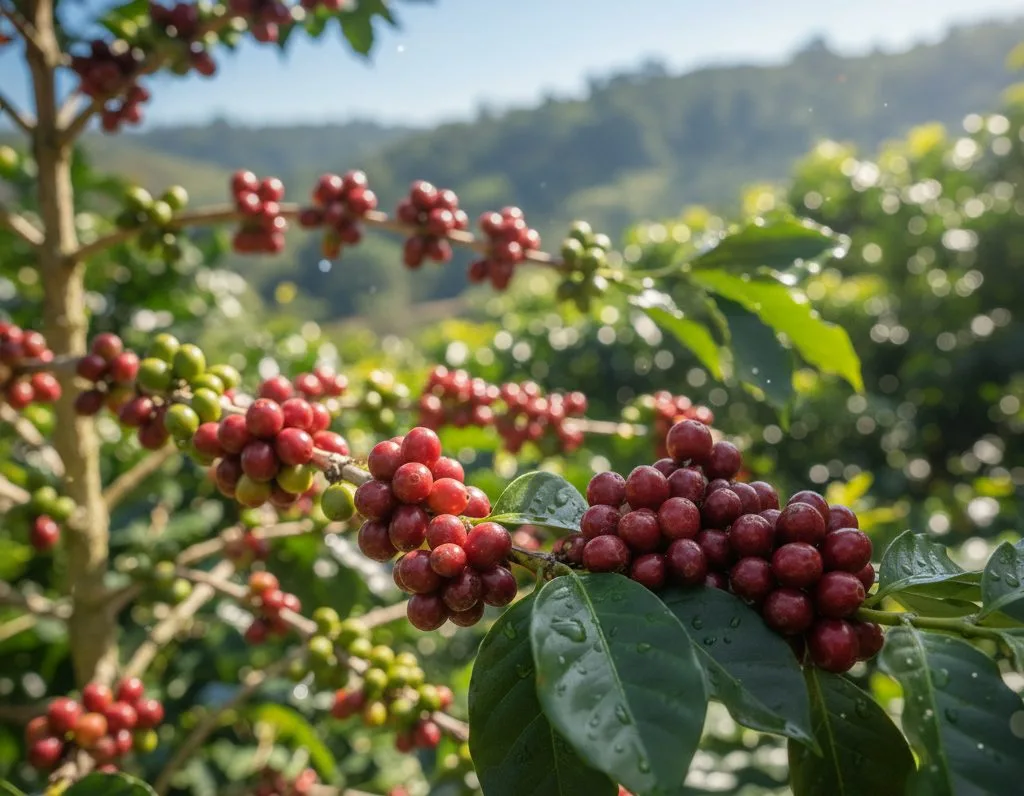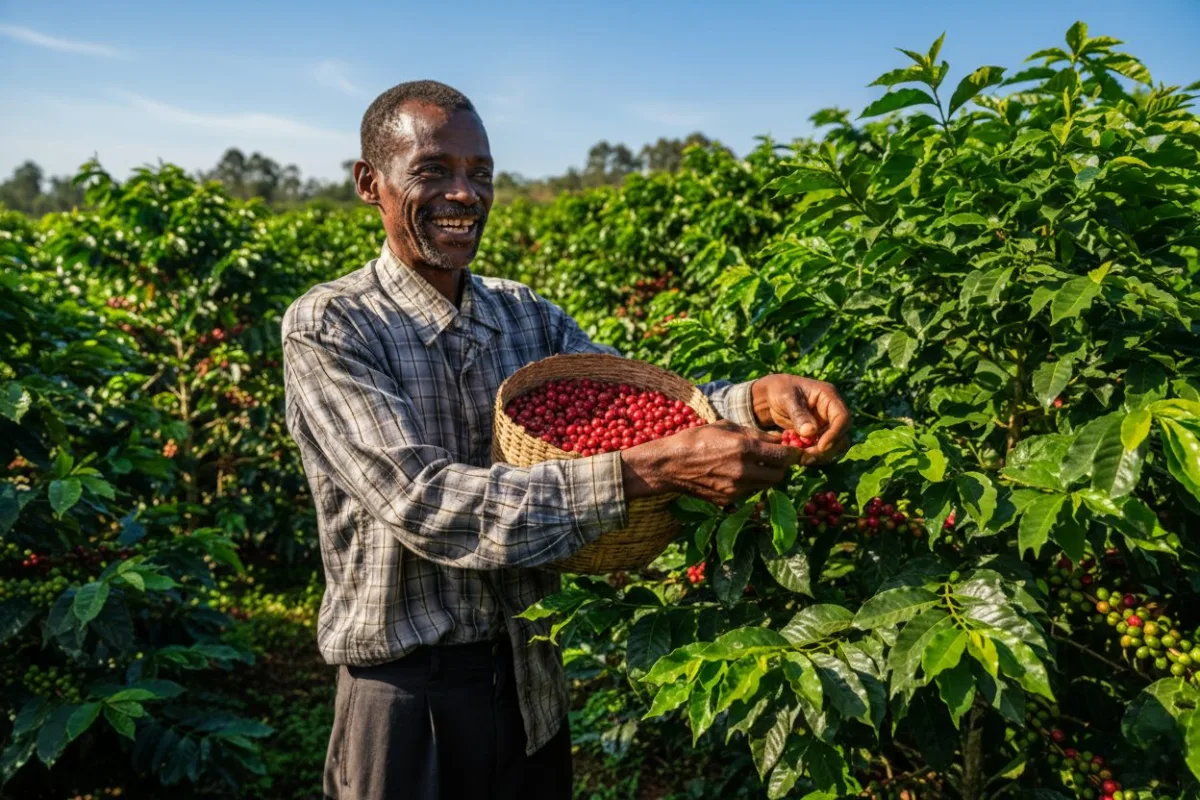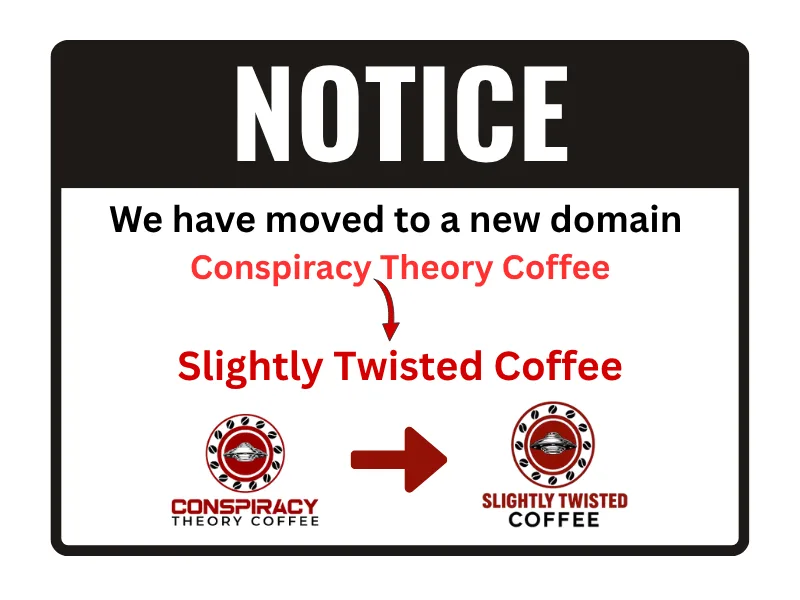Blog
The Complete Guide to Single-Origin Coffee: From Farm to Cup

If you’ve ever wondered what “single-origin” really means and why it matters, you’re about to discover the truth behind this specialty coffee label, from farm practices to flavor profiles to how your purchase impacts global coffee farming.
Table of Contents
What Does Single Origin Actually Mean?
On the surface, “single-origin” sounds straightforward: coffee from one place. But in the specialty coffee world, true single-origin means precise traceability to a specific region, cooperative, individual farm, or even a particular lot on that farm.
Walk through a grocery store and you’ll see coffees labeled simply as “Ethiopian Coffee.” While technically single-origin (one country), specialty roasters define it much more specifically. High-quality single-origin coffees can be traced to:
- A specific region within a country
- A particular cooperative or mill
- An individual farm or estate
- Even a specific lot or varietal from a specific farm (microlots)
The most important aspect isn’t just geography, it’s traceability. You know exactly where your coffee comes from, that it’s not a blend, and that it possesses unique characteristics from that specific growing area. This reflects what third wave coffee is all about: understanding your coffee’s profile and how everything at origin affects your cup.
Did You Know? Specialty roasters name coffees intentionally. When coffee comes from one farm, it’s often named after that farm or producer. When coffee comes from a producing group, that group chooses a name representing their collective identity.
What Makes Single Origin Coffee Special
Distinct Flavor Profiles Of Single Origin Coffee
Single-origin coffee isn’t necessarily better than blends, but each tastes distinctly different. Multiple factors create these unique flavors:
- Growing Stage: Coffee variety, microclimate, elevation, soil composition, and cultivation practices
- Harvesting Stage: Picking timing, techniques, and cherry selection
- Processing Stage: Milling methods, processing techniques (washed, natural, honey), and drying conditions
Each factor is unique to a specific place, creating dramatic flavor variations from country to country, region to region, and farm to farm. This is what coffee experts call terroir, the way environment shapes flavor.
Seasonality Of Single Origin: A Feature, Not a Bug
Single-origin coffees are inherently seasonal because coffee tastes best when recently harvested. Specialty roasters offer these coffees at their peak for optimal flavor. Depending on lot size and freshness retention, some single-origins stay available for months, while others appear for just days. However, relationship-based buying means even after a coffee leaves the menu, it likely returns at the same time next year.
How Consumer Demand Transforms Coffee Production
The specialty coffee market has become a significant force affecting farming methods. Specialty farmers develop high-quality crops specifically responding to demand for distinctive single-origins, experimenting with:
- Selecting specific varietals (like Pacamara in El Salvador, known for floral notes and sweetness)
- Precise growth condition control
- Refined harvesting techniques
- Innovative processing methods
The Direct Trade Revolution
These innovations required direct trade, greater communication between roasters and farmers pursuing higher-quality coffee. Producers learn about market trends while roasters discover exciting new single-origins.
Origin visits have become commonplace, providing knowledge for roasters and buyers. Growers, buyers, and roasters cup together on farms, sometimes tasting up to 100 coffees daily—comparing processing profiles and scoresheets. As information and coffee are traded, consumers notice increased sophistication in available coffees.
Your Role in the Quality Cycle
When you appreciate and pay for superior quality, it encourages farmers to work harder and showcase their efforts. This creates empowerment: when farmers deliver excellence and consumers demand quality, roasters must pay fair prices. Every specialty single-origin purchase supports higher-quality products and ethical practices.
Support Ethical Farming
All our beans are ethically sourced from carefully selected farms in Honduras and Colombia. We’re proud to offer Smithsonian Bird Friendly® certified coffee that protects birds and habitats.
Industry Quality Standards
While single-origin often indicates good coffee, it doesn’t guarantee quality. Globally respected evaluation systems measure coffee quality:
- Cup of Excellence: The highest recognition in specialty coffee, acknowledging quality and care in specialized, rare lots.
- Coffee Quality Institute Q: Adheres to SCAA standards, evaluating fine Arabica, Robusta, and blends at producer and farm levels.
- Coffee Review: The world’s most widely read coffee buying guide, focusing on roast profiles.
These systems use blind cupping protocols, the 100-point review system, and standardized descriptive categories to quantify quality and remove subconscious biases.
Perspectives from Farmers and Roasters
What Farmers Say
“Single-origin coffees allow consumers to understand a specific coffee profile in its own right, showing the love and passion each producer invests.”
Today’s specialty coffee farmers take immense pride in their coffee quality. They care deeply about the end result and how it translates to consumers. For farmer-baristas understanding the entire chain, from cultivation to brewing, the direct connection is beautiful. When consumers understand product quality, it guarantees sustainability for everyone making extra efforts in every coffee-making step.
What Roasters Say
Originally, “single-origin” simply differentiated coffee from house blends. Today, many specialty roasters feel it doesn’t do producers justice. The industry now discusses single varietal, single farm, and day lots, endless fascinating possibilities.
Consider Tanzania: it has coastal tropical weather, snow-capped Mount Kilimanjaro, the Nyiri desert, Lake Victoria, and the Serengeti. Coffee-growing regions border Rwanda, Burundi, Kenya, Uganda, Mozambique, and the Democratic Republic of Congo. Taste variations are outstanding.
“Single-origin on this scale can misrepresent amazing differences within a single country’s coffee. Over time, it has become a quality indicator, essentially a roaster saying, ‘This coffee is special and I want you to know about it.'”
Single estate has become the main focus now, with roasters offering named coffees like wine estates, matching public interest in enhanced food and drink provenance.
How to Find Single-Origin Coffee You’ll Love
Check Flavor Notes
Specialty roasters identify recognizable flavors to guide you. If notes sound appealing—berry-forward, chocolatey, floral, or citrusy—try it. Looking for smooth and approachable? Try medium roast options. Prefer bold and robust? Dark roasts deliver intensity without bitterness.
Pay Attention to Origin and Processing
Coffees from the same region often share similar characteristics. If you enjoy one, you’ll likely appreciate others from that area. Beyond country and roast, post-harvest processing helps you navigate by flavor rather than pure geography.
Filter Coffee vs. Espresso
Filter Coffee: Single-origin versus blend boils down to adventure versus stability. Blends provide consistency; single-origins offer constant exploration.
Espresso: Blends balance flavors and often work better for milk-based beverages. Some single-origins excel, especially depending on milk-to-coffee ratio. For straight espresso, try anything once.
Ask Questions
Reach out to baristas or customer support for recommendations based on your preferences. Roasters and farmers want to help you appreciate their hard work.
Not Sure Where to Start?
Browse our complete coffee collection and discover which conspiracy speaks to you. We’re always happy to help fellow truth-seekers find their perfect brew.
The Bigger Picture: Transparency in Coffee
The single-origin movement is fundamentally about transparency—being clear and detailed about coffee origins. This benefits everyone:
- Farmers receive recognition and fair compensation for exceptional work.
- Roasters showcase distinctive coffees and build lasting producer relationships.
- Consumers gain insight into what they’re drinking, make informed choices, and connect with the people and places behind their coffee.
Relationship-based buying means identifying coffee by origin lets us taste the difference while knowing where it came from, so we can anticipate it returning year after year.
Start Your Single-Origin Journey
It’s a big world of coffee out there, spanning diverse climates, elevations, processing methods, and farming philosophies, each creating unique flavor experiences. Start exploring one single-origin at a time, asking questions, noting what you enjoy, and discovering the remarkable diversity coffee offers. Every cup tells a story of place, people, and passion.
The Truth is Brewing
At Conspiracy Theory Coffee, we believe coffee is not just a beverage; it’s an exploration. Our single-origin beans are meticulously chosen from carefully selected farms and freshly roasted in small batches in Florida to unlock their hidden depths.
Ready to uncover the truth in your cup?
Shop our single-origin collection now and get free shipping on orders over $45. That’s only 3 bags to unlock the mystery.
The truth is brewing. One sip at a time.





